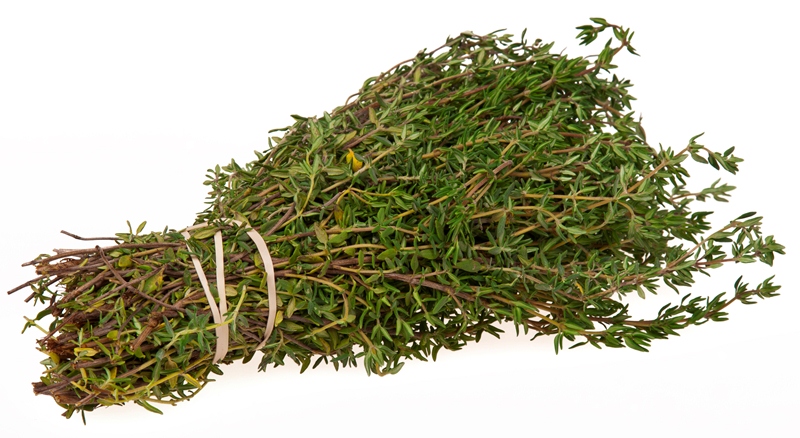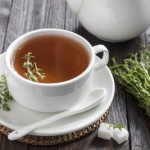Thyme – A Plant With Anti-aging Properties
The list of plants that prevent aging, compiled by botanist James A. Duke, includes garlic, Ginkgo Biloba, Ginseng, Evening Primrose, Golden-Thistle, mint, chamomile, Horsetail, Willow, and Purslane.

Thyme is another herb rich in chemical compounds that have anti-aging properties. Studies have identified that the thyme oil a very strong substance called carvacrol, which suppresses inflammation and fights chronic diseases.
Thyme essential oil has many uses in the medical, pharmaceutical and cosmetic fields. The studies made on this plant showed that thyme has the following therapeutic effects:
- antimicrobial
- antitumor and antigenotoxic (anticancer)
- antimutagenic (against genetic mutations)
- analgesic, anti-inflammatory
- antiparasitic
- antiplatelet (fights blood clots and cardiovascular diseases)
- antihepatotoxic and hepatoprotective
Here is what the botanist James A. Duke said about thyme: “It is useful even if it is boiled. I regularly use a handful of dried thyme in my bath water and thyme oil is useful for relieving back pain.”
Thyme is best known for its ability to help treat infections. Since ancient times, this herb was used to treat respiratory and digestive diseases and against pestilences, such as plague, cholera, pulmonary tuberculosis, dysentery, yellow fever and syphilis.
Recent studies have shown that this plant can kill antibiotic-resistant bacteria such as Methicillin-resistant Staphylococcus Aureus.
Thyme extract is used as germ-killer in mouthwashes and to reduce inflammation, as well as in cough lozenges for the treatment of throat infections. Moreover, thyme tea is effective in reducing pain and menstrual cramps.
Regarding its external applications, studies have shown that thyme is more effective than benzoyl peroxide to treat acne. Thyme infusion applications have better results and have no side effects.
Contents
History of thyme
Egyptians used thyme for embalming and in Ancient Greece the plant was used in temples, as incense, but also added to bathwater. The Romans used thyme as flavoring agent for cheese and alcoholic beverages. It is believed that they are the ones who brought thyme to the rest of Europe. Hippocrates, ‘the father of Western medicine’, mentioned the therapeutic uses of thyme in treating respiratory diseases and conditions, and also as a culinary herb, grown in countryside gardens.
Administration
- Infusion. Thyme infusion is prepared from a teaspoon of thyme and a cup of boiling water. Allow 10-15 minutes to infuse. Drink warm.
- Powder. You can get thyme powder by grinding the dried plant in the electric coffee grinder. Take ¼ teaspoon ground thyme 3-4 times a day. Store in tightly closed glass jars. The powder lasts only seven days; that is why you should grind it fresh.
- Essential oil. You should buy thyme essential oil only from herbal stores. Mention to the shop assistant that you want to use it internally. Read the patient leaflet. Thyme can also be used as a tincture.
Nature gives us everything we need for a healthy life. The amazing herbs have a variety of uses, which we can easily learn and apply. Enjoy thyme and avail its benefits for the body.



